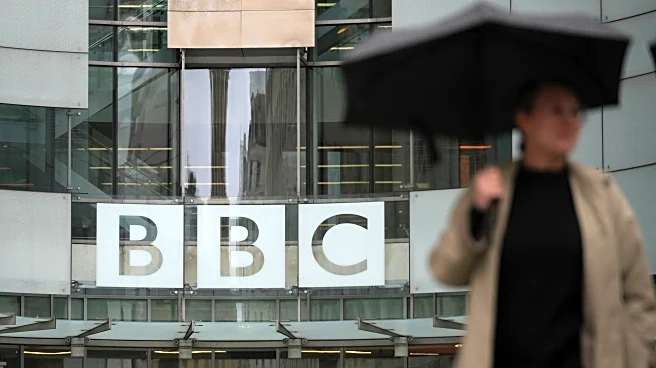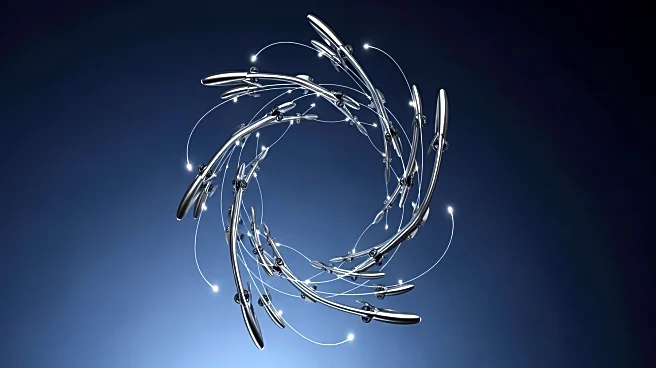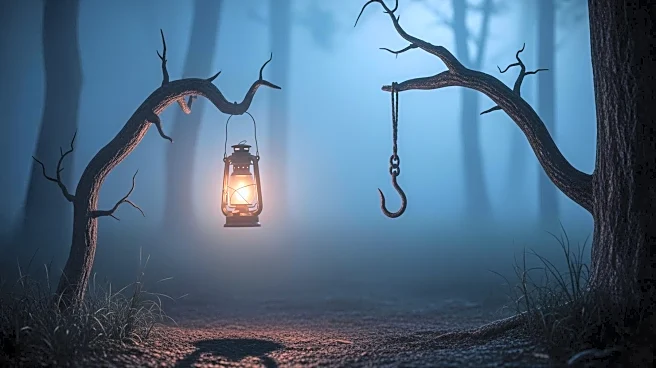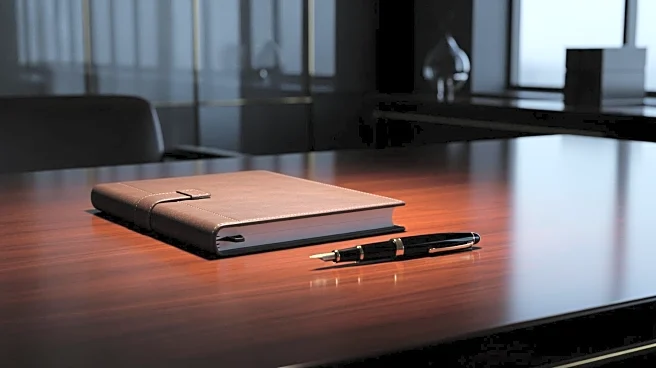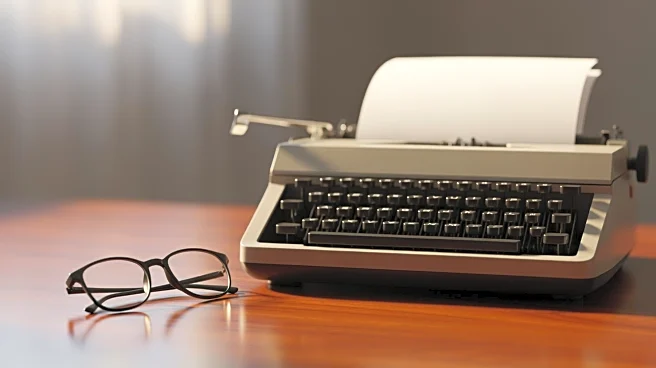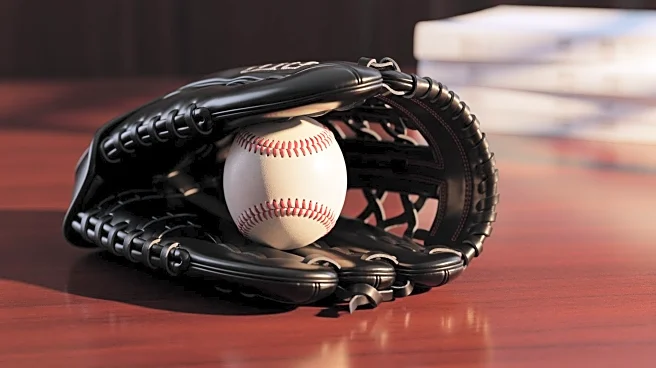LONDON (AP) — The sudden resignation of two top bosses at the BBC over the editing of a speech by U.S. President Donald Trump dealt a huge blow to the broadcaster, which is revered by some in Britain as a national treasure but derided by others as outdated and left-leaning.
The century-old, publicly funded BBC faced criticism after its flagship TV news program spliced together sections of a speech Trump made on Jan. 6, 2021, so that it appeared he explicitly
urged supporters to march on Capitol Hill and “fight like hell.”
The BBC chairman apologized Monday for an “error of judgment.” A letter from Trump’s attorney threatened legal action, demanding that the broadcaster “retract the false, defamatory, disparaging and inflammatory statements” and compensate the president for the harm caused.
Critics say the episode is just the latest example of bias at the BBC, but supporters maintain that it is one of the most trusted sources of news in the U.K. and around the world, and that the departure of its most senior executives casts a chill on public-service broadcasting.
“This is an existential crisis for the BBC,” said Julie Posetti, a journalism professor at City St. George’s University of London. “In capitulating so quickly, it has sent a signal that it’s relatively easy to cow the BBC.”
That is “incredibly dangerous” in an increasingly polarized environment “where the information ecosystem is incredibly polluted,” she warned.
A look at the scandal, past criticism of the BBC and uncertainty about its future:
The furor unfolded days after the right-leaning Daily Telegraph newspaper last week published details from an internal memo compiled by a former external editorial standards adviser to the BBC.
The memo raised concerns over how the BBC’s “Panorama” documentary program edited a speech by Trump.
The program, which was broadcast days before the 2024 U.S. election, as Trump ran for a second term, spliced together three quotes from two sections of the speech, delivered almost an hour apart, into what appeared to be one quote in which Trump urged supporters to march with him and “fight like hell.”
Among the parts that were cut was a segment where Trump said he wanted supporters to demonstrate peacefully.
The BBC’s director general, Tim Davie, and head of news, Deborah Turness, both resigned Sunday.
The broadcaster’s chair, Samir Shah, acknowledged that the editing gave “the impression of a direct call for violent action.” Turness said Monday that mistakes were made, but she insisted "there’s no institutional bias” at the BBC — a position supported by Prime Minister Keir Starmer.
The memo also criticized BBC coverage of transgender issues, alleging that the broadcaster’s reporters promoted a pro-trans agenda, and warned about an anti-Israel bias in the BBC’s Arabic service.
Reacting to the resignations Sunday, White House press secretary Karoline Leavitt posted a screen grab of an article headlined “Trump goes to war with ‘fake news’ BBC.” Trump himself wrote on social media that BBC journalists were “corrupt” and “dishonest” and “tried to step on the scales of a Presidential Election.”
Critics have long charged that the broadcaster leans left, though some have also accused it of being too cautious to challenge successive Conservative Party governments. On Monday, the hard-right leader of the Reform U.K. party, Nigel Farage, told a news conference that the BBC “has been institutionally biased for decades” to loud applause from supporters.
In recent months, the corporation came under sustained criticism from all sides over its coverage of the Israel-Hamas war in Gaza, including its livestreaming of a rap duo’s chants calling for “death to the IDF" (Israel Defense Forces) at this year’s Glastonbury festival. It also had to remove a documentary about Gaza from its streaming service after it emerged that the child narrator was the son of a Hamas official.
Charles Moore, a former editor of the Daily Telegraph, alleged that the BBC has a consistent bias, “always from a sort of metropolitan, left position” on trans issues, as well as its coverage of race, Trump, Israel and Gaza.
“I’m not, of course, saying that it should be right-wing either,” Moore said. “I’m saying it should take impartiality seriously and put in people capable of running this gigantic and self-satisfied bureaucracy.”
Posetti disagreed and said the BBC, like many other news outlets, is under attack from right-wing voices and the Trump administration.
She acknowledged the editing mistakes but said it is wrong to call the broadcaster fake news “when patently it is not.”
“I’m not suggesting that there weren’t errors made, but I think that those errors needed to be addressed head-on, clearly and transparently and in a very timely manner." Instead, she said, the resignations will have a “destabilizing effect.”
Trump's threats to take legal action over the BBC’s editing brings to mind similar legal disputes between the president and several U.S. news organizations.
In July, Paramount, which owns CBS, agreed to pay $16 million to settle a lawsuit filed by Trump over a “ 60 Minutes” interview with former Vice President Kamala Harris. Trump alleged that the interview was edited to enhance how Harris, the Democratic nominee for president in 2024, sounded.
Last year, ABC News said it would pay $15 million to settle a defamation lawsuit over anchor George Stephanopoulos ’ inaccurate on-air assertion that the president-elect had been found civilly liable for raping writer E. Jean Carroll.
The BBC is funded through an annual TV license fee of 174.50 pounds ($230) paid by all households with a television.
The corporation is bound by the terms of its charter to be impartial and independent. It is not a state broadcaster beholden to the U.K. government. Its model has inspired the CBC in Canada, the ABC in Australia and other publicly funded outlets, Posetti said.
Known affectionately — or mockingly — as “Auntie,” the BBC began in the 1920s and changed the history of television when many Britons bought a TV set specifically to watch the coronation of Queen Elizabeth II in 1953. It still devotes more time and resources than other outlets to events such as the death of the monarch in 2022.
Outside the U.K. the BBC World Service operates in over 40 languages and is one of Britain’s most significant cultural exports. Apart from news, it retains a huge global viewership with popular entertainment shows, including “Doctor Who,” "The Traitors” and “Strictly Come Dancing” and their spinoffs.
Ahead of the renewal of its charter in the next few years, many critics have questioned whether the license fee model is still viable at a time when viewers are turning to streaming competitors, YouTube and social media. The BBC has lost millions of pounds as more households stopped paying the fee in recent years.
“This is the BBC’s last chance,” Farage said. “If the BBC doesn’t now get a grip … then I think what you would see within the next couple of years are many, many millions just refusing, just not wanting to have the license fee.”
